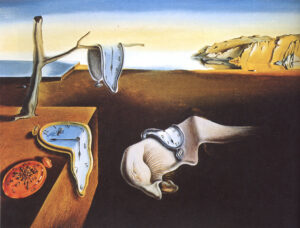

The following is from Joan Didion’s BLUE NIGHTS
“You have your wonderful memories,” people said later, as if memories were solace. Memories are not. Memories are by definition of times past, things gone. Memories are the …faded and cracked photographs, the invitations to the weddings of the people who are no longer married, the Mass cards from the funerals of the people whose faces you no longer remember. Memories are what you no longer want to remember.”
Yes, that’s Joan Didion, her words veering toward the negative. Because loss is tragic, hard, challenging. She wrote BLUE NIGHTS after the death of her daughter. She has already lost her husband; this loss shakes up the foundations Didion depended on, and I applaud her words when I need to search for strength. But can we also be nostalgic, worry about loss, when we are young? Yes. Definitely.
Anne Frank’s diary is all about the days of her life that have passed. She knows those days are gone, that her world is imploding and that she might never again sit in a classroom, walk the streets of Amsterdam free and unhindered, look forward to love, marriage and children.
Anyone who looks back in longing–for a friend, a house, a parent, a pet, an experience…can feel and write about their longings–this is true nostalgia. You are grieving. You want something back, and if you can’t have that something, you simply don’t want to forget it.
CREATIVITY AND REMEMBERING
There was a time when I began to write, that nostalgia seemed to propel me. Why? I was young, and I saw that my experience was in some ways limited. Some changes in my life had already happened (loss of a parent, early responsibilities as a result). And I saw that I didn’t want to relive my childhood, but that it dwelled within me, making my losses and gains part of me, the definitive engine of my creativity.
Because when you write, you are either pulling things out of your own experience or making shit up. Both land on the page, and wow, you’re a writer. (Though not necessarily a good one. It takes time, lots of time. Maybe forever.)
SO WHAT IS THE ENGINE OF CREATIVITY?
When Author Ann Patchett (Bel Canto, The Dutch House, Commonwealth) takes a personal memory and infuses it with meaning, she has the basis, the platform for her next novel. She describes her process this way: “I’m very sure that my memories are true and accurate, and if I put them up against the memories of my family or my friends, they would also have very different, true and accurate memories. Even if they differ…” Because we know that fiction comes from seeds of experience. IT COMES FROM LIFE, FROM LIVING. And what one person sees or hears or feels, can differ from another.
EVEN FICTIONAL CHARACTERS LIVE IN OUR MEMORIES
One of my favorite authors, Elizabeth Strout, discovered that her characters refused to stay within the pages of past books. Though Strout left her home in Maine for New York City, Maine stayed with her. So did the voice, the face, the life of Olive Kitterridge, the eponymous title of the collection of short stories that won Strout the Pulitzer for fiction. Because Olive wasn’t finished. She continued to speak to Strout, and thus Olive Again came to be, more stories that take us back to Maine, but also (and this is to amazing and clever) bring back characters from Strout’s other novels. It’s delightful for Olive to find herself living in the same senior facility as the mother from Amy and Isabel, that being only one example. After writing My Name Is Lucy Barton, Strout then felt compelled to learn more about Lucy’s beginnings and sent her back to a small town in Illinois to reconnect with her siblings. The result, another collection of stories, Anything Is Possible.
So think about it…we all do this: let our memories grow, fill out the stories of our lives, enhance them. At some level WE ARE ALL STORY TELLERS. Can’t exactly remember what happened at that picnic reunion five years ago? Well, give it a try, who was there, what were the topics of conversation. But I guarantee, in the retelling, there will be embellishment. Actually it’s STORY TELLING.
WRITE IT DOWN
Many of us kept or still keep a diary. It’s our lives on paper, our deepest thoughts and even our anger, our hurts. It’s not fiction, but it can fuel fiction and it always comes from the power of memory.
So…if you have the time and the yearning, talk to old friends. Discover that the mention of place, a high school crush, a certain teacher creates a flood of memory. And though those memories aren’t always positive, they are part of our lives. As mentioned above, Joan Didion wrote a book after losing her husband and after losing her daughter. I treasure both of these books. Didion used the power of memory, of words to seek healing. Each of us is a vessel of stories. Please…write them down, even if doing so is painful. They are part of you; they have power.
Artwork: Adam Santana; Salvador Dali…Persistence of Memory

4 Responses
Been keeping a journal for 36 years. I’m not sure I could live without it. Glad to see I’m in such amazing company.
YOU ARE AMAZING COMPANY. Hugs, Beth
I am the sum total of my memories all gathered together and tied with the cords of joy and sorrow. Every memory is precious. I learned from each.
They do form the basis of every one of my stories!
And I’m grateful.
Thank you for this, Beth! You always get my thinker thinking!
I agree that every memory can be precious, in that we learn from living, from life and experience. Sometimes it is a hard go, so we hugs ourselves that we made
it through. Always grateful for your ideas, Beth